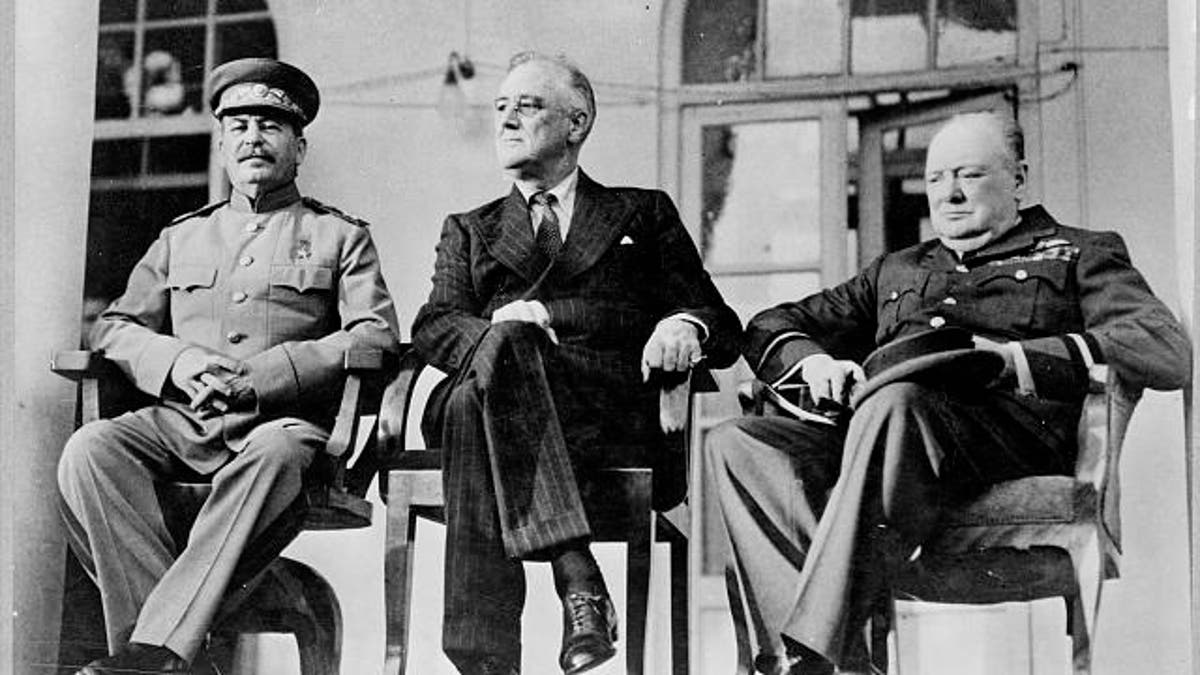
Joseph Stalin, Franklin D. Roosevelt and Winston Churchill sit on portico of Russian Embassy in Tehran, during conference in 1943. (Library of Congress)
Early in the evening of Dec. 26, 1941, a train bound for Fort Knox pulled out of Union Station in Washington, DC. Four Secret Service agents stood guard over an assortment of discreet-looking packages stashed in Car A-1. Only a handful of government officials knew what they contained.
Inside the parcels were the original Declaration of Independence, the original Constitution of the United States and the first and second drafts of Abraham Lincoln’s Gettysburg Address.
The very spirit of America was on that train, being secreted away from an enemy determined to stamp out life, liberty and the pursuit of happiness.
“American Treasures” (St. Martin’s Press), a book by Stephen Puleo out Tuesday, tells the stories of the US government officials who protected our nation’s heritage following the Japanese attack on Pearl Harbor.
One of its heroes is Franklin D. Roosevelt, who understood “the symbolic value of those documents and who realized, particularly after Pearl Harbor, the psychic disaster it would be if they were destroyed,” Puleo tells The Post.
Roosevelt’s fears were warranted. There was, Puleo explains, a palpable sense that the Germans could attack Washington, DC.
“There were U-boats off the East Coast of America, sinking ships near Cape May and Cape Cod,” he says. “People thought there would be bombers overhead. So the decision to remove the documents was not a frivolous or whimsical thought.”
Government officials were also acutely aware of the destruction, well underway by 1941, of England’s heritage: The Germans had dropped a bomb on the British Museum, obliterating more than 1,000 books collected by King George III.
Roosevelt put his friend Archibald MacLeish, the head of the Library of Congress, in charge of cataloging and safeguarding America’s historical papers. Well before the bombs fell on Pearl Harbor, MacLeish and some 700 Library of Congress staffers worked overtime and without pay to catalog thousands of documents, ranking them in order of historical importance.
Some 5,000 manuscripts were removed from Washington, DC, during the war. Among them were an original Gutenberg Bible, James Madison’s handwritten notes on the Constitutional Convention, the Articles of Confederation, George Washington’s personal papers, the Lincoln Cathedral copy of the Magna Carta, and Walt Whitman’s notebooks.

